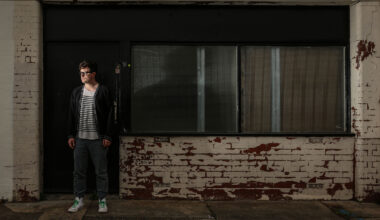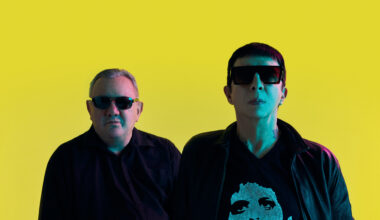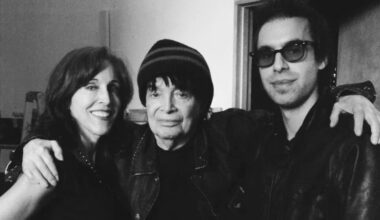Ian Boddy tells us about running his north east-based DiN label, a two-decade labour of love that has carved him a rightful place in the ambient hall of fame
“I liken it to being caught in the headlamps of a giant freight train, it’s enormous.”
Fret not – founder and proprietor of the DiN stable, Ian Boddy, is not describing the task of running the esteemed ambient label for two long decades, producing some 60 albums. He’s actually discussing witnessing one of the label’s acts, Node, in full live flow at – of all places – the prestigious but distinctly establishment Royal College Of Music in London.
It was a rare occasion for more than one reason. Not only is it unusual for anyone, let alone a non-classical act, to perform in its hallowed halls, but also because Node only get together very infrequently. There was a 19-year gap between their first two albums, and gigs by them are less common than the proverbial hen’s teeth. Why? Well, their four-strong lineup tends to be pretty busy, given that two of them are sought after producers – Flood (U2, PJ Harvey) and Ed Buller (Suede, Pulp) – and the other two, soundtrack wizard Mel Wesson and Dave Bessell, who teaches Music Technology at Plymouth University, aren’t short of a booking either. However, when they do get together, they like to make an impression.
“They filled the Royal College Of Music with several tons of this vintage equipment,” says Boddy with a laugh. “So much live performance now is done on laptops, but you can’t beat that Moog and modular gear. Apart from the fact it looks great, the sound is incredible.”
You don’t, however, need to take Boddy’s word for it. The whole gig was captured on DiN55, the ‘Node Live’ album, excerpts of which are also included on the CD (’DiN60:iNDEX06’) that accompanies the subscriber edition of this very issue of Electronic Sound.
Every 10th release in the DiN catalogue is a Boddy-mixed ‘iNDEX’ CD containing highlights from the previous nine outings, but DiN60 is rather special as it celebrates the 20th birthday of the label. As a “rather grand gesture” as Boddy calls it, he’ll be putting all the other mix CDs (DiN10, 20, 30, 40 and 50), up for free download via its Bandcamp page for a limited time too.
The idea for DiN came from a succession of drinking sessions with Boddy’s friend, music writer Sid Smith, in 1998. The pair met back in the 1970s when Boddy was studying Biochemistry at university in Newcastle, and had been drawn to an open access community space called Spectro Arts Workshop.
“I actually went there to make art, because they had screenprinting facilties,” he explains, “but someone said, ‘You like Tangerine Dream, you should go upstairs, there’s a sound studio with a VCS 3’.”
That’s where Boddy, who’d fallen for the charms of classic Tangerine Dream albums ‘Rubycon’ and ‘Phaedra’ earlier in his teens, started making music heavily inspired by the Berlin School of electronics.
By the end of the 90s, however, he had a vision to create a new type of label.
“I wanted it to have an identity,” says Boddy. “I wanted it to look good and for it to be collectible. I wanted a simple three-letter name which could be the catalogue number as well as the label name, so they all had a common factor.”
The idea discussed with Sid Smith over “three or four beers at a few different sessions” was, he says, significantly inspired by Berlin’s Fax label, run by Pete Namlook, who died “way too young” in 2012. He liked the relatively anonymous nature of the releases.
“The genres of the albums were less important than the label name,” he says.

There was a common heritage there too – he could hear the Berlin School and krautrock elements, and these seemed more important than whatever the latest fashionable style was. Eventually, Smith was convinced by Boddy’s conviction, and told him to go for it. By 1999, DiN had been brought to life, not only as a vehicle for his own productions, but also to build a community of like-minded musicians under the banner of a coherent musical concept.
It would probably be facetious to say that everything went to plan – undoubtedly, a sizable amount of blood, sweat and tears has gone into keeping DiN going for two decades.
“Now we’re up to DiN60 – how the fuck did that happen?!” laughs Boddy, with a disbelief that’s only partly feigned. Nevertheless, DiN has slowly but surely spread its tentacles across the globe, completing its mission of building a network of artists from Node and Throbbing Gristle’s Chris Carter to newcomers d’Voxx, a duo working in the “New Modular” sound, whose ‘Télégraphe’ album was DiN’s 58th release. Boddy views them as a cut above the current vogue for new modular equipment.
“There are thousands of videos online of people playing modular synths and they sound OK,” he says. “But d’Voxx have got a real musicality about them.”
As a lover of old modular gear, he’s keen on providing a voice and a platform for the cream of the New Modular community.
“It’s all very well using cool gear, but the musicality of things is what really interests me. You never know, there might be something they can get into on DiN too.”
As well as d’Voxx, Boddy has also released two albums of the modular-centred Tone Science project, with plans for a third in the pipeline.
“On volume three I’d like to reach out and interact with some other musicians,” he says. “It broadens the whole thing.”
The label’s releases have also featured acts from Greece, Germany, Norway and both coasts of the US. Boddy admits he was surprised when he was approached by Bluetech from San Diego, California, already a well-known downbeat IDM name. He was vaguely sceptical when the producer and DJ first got in touch, but listened without prejudice – and was glad he did.
“I knew of him already and had some of his albums from iTunes years ago,” says Boddy. “He said he’d like to do a DiN-friendly album, I was like, ‘Let’s see what you can do then’. When it arrived the opening track was beautiful.”

Mystery, however, surrounds the whereabouts of another DiN artist, Japanese-born, New York-based producer of minimal, digital ambient beauty Tetsu Inoue, responsible for ‘Yolo’ (DiN22).
“Tetsu has completely disappeared off the face of the earth. His emails no longer work,” Boddy confesses. “The internet is full of theories on what’s happened to him but nobody really knows.”
Boddy himself remains as prolific as ever and his musical input continues to play a defining role in shaping the ongoing DiN story. He’s remained true to his roots, still using some of his original vintage gear, and he revisits the Berlin School regularly with ARC, his project with long-time collaborator Mark Shreeve (“He’s been around as long as I have, and actually wrote some of Samantha Fox’s hits back in the 80s!”). That said he’d never want to be tied exclusively to that style. “I couldn’t do it all the time,” he says.
Having turned professional shortly after the turn of the millennium, Boddy says he’s never woken up with nothing to do, with library music (20 albums and counting) and synth sound design the two other major strings to his bow. Creatively, they all feed into each other. Today, however, he’s working on music for two concerts booked in the autumn in the UK and the Netherlands, and as the contents of the DiN60 mix prove, as well as ARC and his solo material, he likes to keep busy working with an array of other musicians. Most recently, that’s been Norwegian composer/guitarist Erik Wøllo and German guitarist Markus Reuter, noted for his experimental playing style using an eight-string touch guitar.
Get the print magazine bundled with limited edition, exclusive vinyl releases

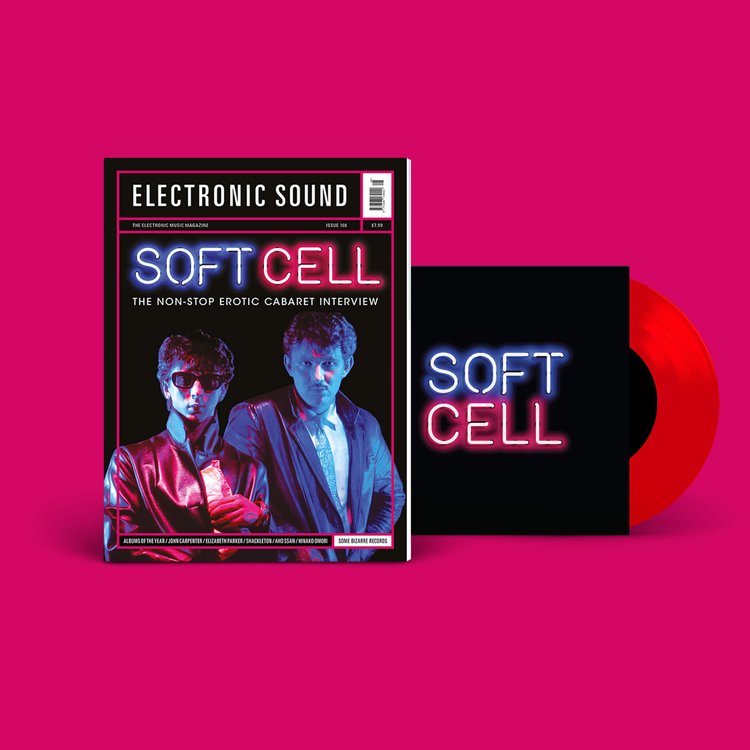
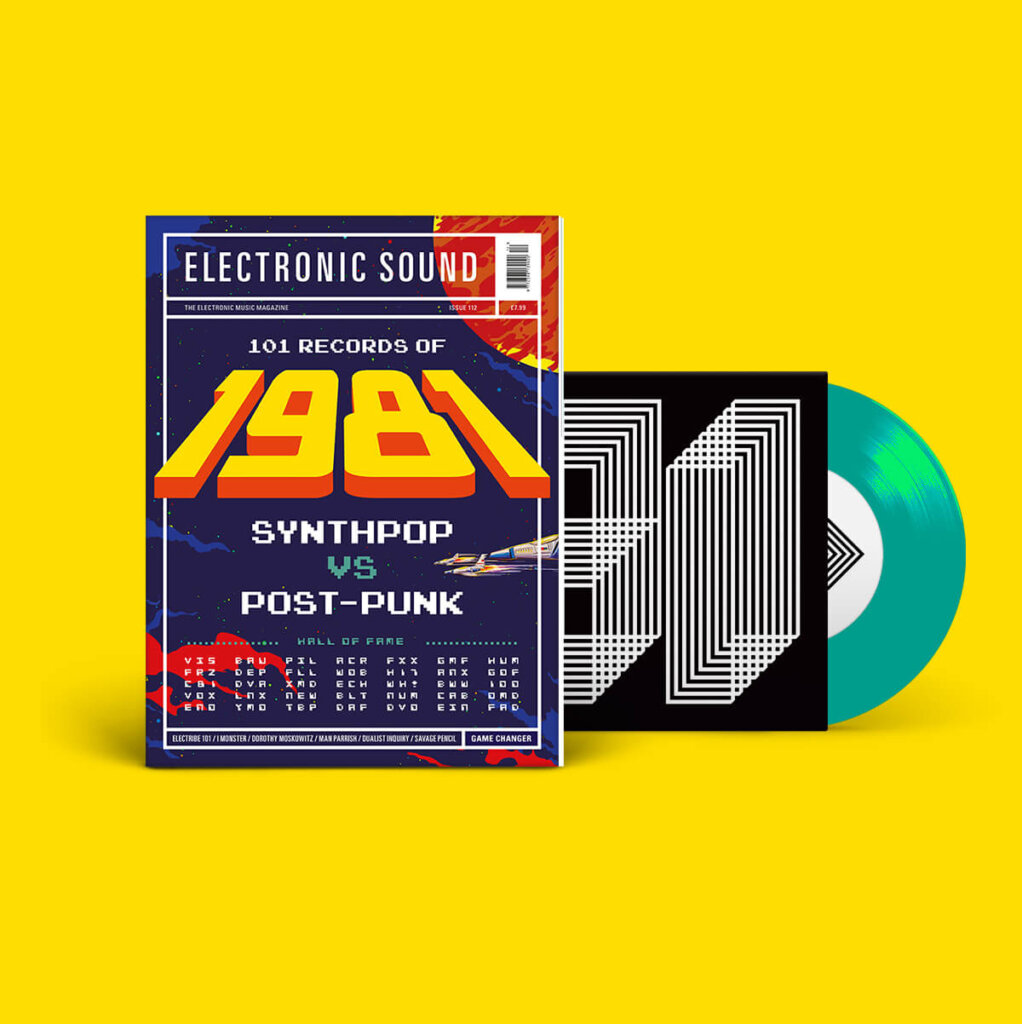
Then, of course, there’s the not insignificant job of running DiN itself. Boddy, in his own words, has remained quite old school about affairs.
“You could spend all your time doing social media, but I’m not sure whether the benefits would justify it,” he says. “Bandcamp is very, very good though. Not only do the artists get a larger slice of the income, but the whole ethos behind it seems right.”
He admits that the huge sprawl of new music worldwide means a bewildering amount of choice for listeners, not to mention incomes spread ever more thinly across the independent label sector.
“It’s all very fractured,” says Boddy. “Because there are thousands of micro niches and sub-sub genres, it can be quite confusing. Meanwhile, the mainstream is unbelievably safe – many of the artists we have just wouldn’t get a record deal.”
Yet, with a specific, defined musical vision and high quality control, DiN continues to survive and even thrive. Although he does enjoy the freedom to stick out the occasional free-to-download album, the real ambition for the future, again in Boddy’s own words, is simply to “keep doing what I’m doing”. Namely turning the wide spectrum of groundbreaking, beautiful ambient music into gorgeously packaged physical releases.
“Vinyl is great, but it’s a total pain in the arse,” he concludes. “But people still buy CDs, so I’m going to carry on for now. I do like physical product, there’s a real poetry behind it. Let’s face it, no one’s ever going to fall in love with a file on a hard disc.”
For more, visit dinrecords.bandcamp.com

